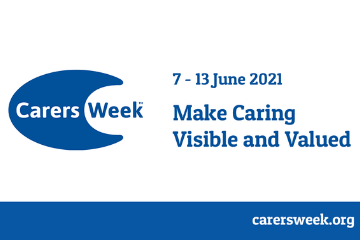
This month saw Carers Week on 7th – 13th June. Carer’s Week marks an opportunity to recognise the invaluable contribution that unpaid carers make to families and communities throughout the UK and to highlight the challenges they face.
It is also a key moment to shine a light on an aspect of caring that is all to often hidden from view.
Older people provide the majority of informal care. 24% of care being provided by those aged 60 to 69, a further 20% by those in their 70s, and 13% of performed by those aged 80 and over.[1]
Too many carers experience abuse at the hands of the person they care for. This indicates the complex nature of abuse in later life and the need for person-centred responses to experiences of harm that look at the whole picture and join up health, social care and justice responses.
Whilst such abuse may occur due to commonly understood dynamics of domestic or elder abuse and may pre-date the caring role, factors related to care-giving can increase the likelihood of abuse. For example, where the person who is being cared for:
· has health and care needs that are too complex for the carer and require long term support;
· does not consider the needs of the carer or family members;
· treats the carer with a lack of respect or courtesy;
· rejects help and support from outside, including breaks;
· refuses to be left alone by day or by night;
· has control over financial resources, property and living arrangements;
· engages in abusive, aggressive or frightening behaviours;
· has a history of substance misuse;
· has or is perceived to have unusual or offensive behaviours;
· does not understand their actions and their impact on the carer;
· is angry about their situation and seeks to punish others for it;
· has sought help or support but did not meet thresholds for this;
· the caring situation is compounded by the impact of the nature and extent of emotional and/or social isolation of the carer or supported person.[2]
In these instances, the older victim-survivor faces additional barriers to disclosure and accessing support. This is both because the carer might feel a sense of obligation to continue this care, despite the abuse and because of the ways in which professionals understand violence perpetrated by those who have care needs.
There is limited research and practitioner knowledge about this hidden experience of abuse due to the taboo nature of the topic and, rightfully, a concern to not stigmatise individuals with mental and physical health problems who act in a violent and unpredictable way. However, much can be learned from a series of in-depth interviews conducted with twelve women performing a caring role for an older person, of these participants, six were older women caring for a spouse.[3]
This research identified the the feelings of shame experienced by those who experience harm as a carer:
‘I used to feel shame and embarrassment about going out after there had been lots of shouting and violence. I was worried about what the neighbours would think. I stayed inside; I wanted to stay hidden. You take on the shame of your loved one’s behaviour because you know that people don’t understand why they are acting in a difficult or upsetting way. You also worry that people blame you and hold you responsible. There are so many layers to how this affects your life. (Rose, caring for her husband)’.[4]
The interviews further demonstrated that harmful behaviour by the cared-for had many manifestations - physical, psychological and sexual.[5]
One way to overcome shame as a barrier to disclosure is to spread awareness, both to practitioners and to the public that this type of abuse can occur, that those experiencing harm are not alone, and that older people should feel empowered to seek help.
A good place to start is our specialist helpline, we are here to listen and support confidentially and without judgement. If you are an older carer experiencing abuse, an older person experiencing harm of any kind, or a concerned family member/friend contact us on 0808 808 8141.
We also need your help to spread awareness of the different types of abuse older people face. Share this post, follow our accounts on social media, and talk to your family and friends about ageing safely and without harm.
 Shop Now
Shop Now